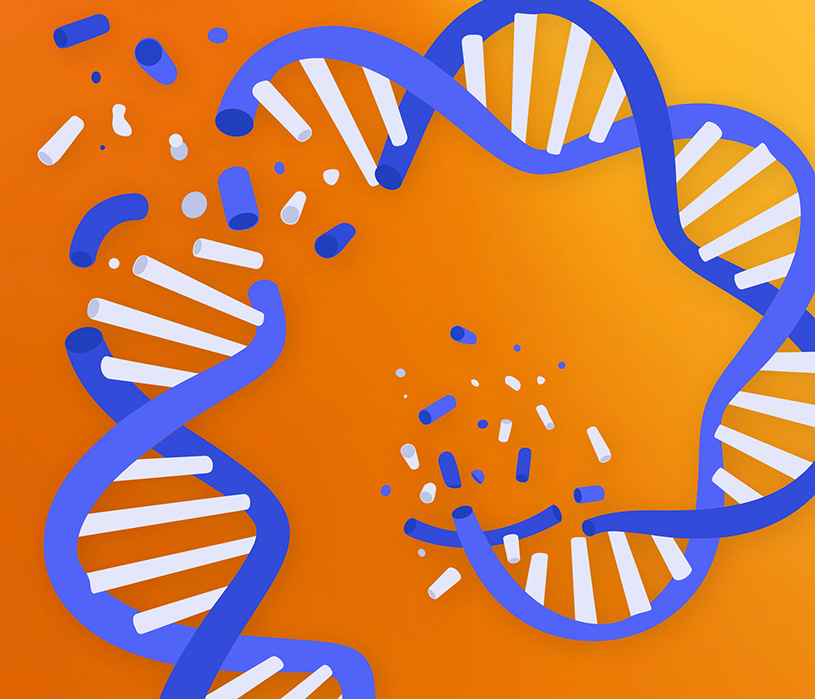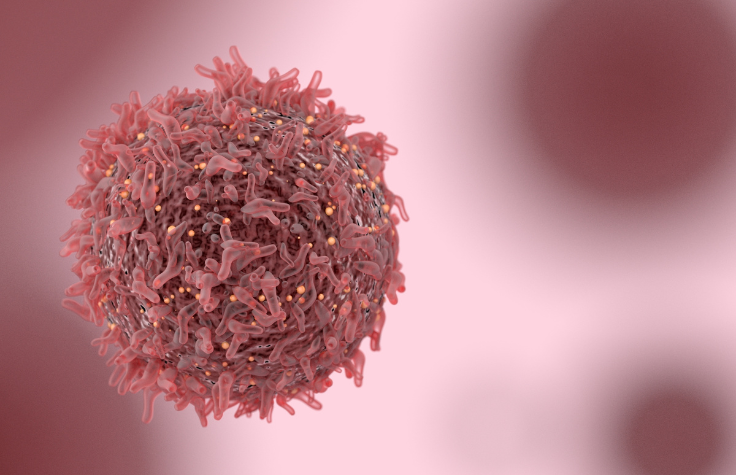マルチオミクスでがん研究を加速
マルチオミクスでがん研究を加速
オンタリオ州がん研究所およびUnited Health Networkの研究者らが、マルチオミクスを通じてどのように複雑な表現型の原因と結果を関連付け、これまで不可能だった探索を可能にしているか、動画でご覧ください。
より良い明日に向けて、がん研究におけるブレークスルーを推進するためのゲノムソリューションの探求

がんは複雑な多因子疾患であり、制御不能な細胞増殖を引き起こし、最初に形成された部位から全身へと広がる可能性があります。がん細胞とその微小環境の相互作用は、ゲノム、エピゲノム、トランスクリプトーム、プロテオームなど、細胞のあらゆる側面に影響を与えます。次世代シークエンシング(NGS)やマイクロアレイなどの高度なツールの進歩により、専門家は、がん生物学に対するこれまでにない理解を基に、研究や個別化医療などの分野で有意義な進展を遂げています。
NGSにより、研究者は、発がん、がん増殖、転移に関連する低頻度の分子イベントを、新規発見のバイアスなしに検出することができます。当社の包括的な製品ポートフォリオは、DNA、RNA、エピジェネティクス、タンパク質などを研究してマルチオミクスがん研究を可能にする、ライブラリー調製、シーケンス、解析のための統合的で柔軟なワークフローソリューションをサポートします。当社は、強力なベンチトップモデルから、多用途でハイスループットなシーケンサープラットフォームまで、お客様のニーズに応える幅広いシーケンシングシステムをご用意しており、迅速かつ正確で費用対効果の高い結果を通じて、実用的な洞察を提供します。

がん研究メソッドガイドは、幅広いがん研究アプリケーションのためのシンプルで包括的なワークフローを紹介した40ページ以上にわたる包括的なリソースです。このガイドでは、シングルセルシーケンス、空間シーケンス、メチル化プロファイリング、マルチオミクス、セルフリーRNAシーケンスなどについて説明します。
ご提供いただいた個人情報は、お客様へのサポート、サービス、および販売活動の目的にのみ使用させていただきます。
NGSにより、研究者は、発がん、がん増殖、転移に関連する低頻度の分子イベントを、新規発見のバイアスなしに検出することができます。この包括的な製品ポートフォリオは、DNA、RNA、エピジェネティクス、タンパク質などを研究してマルチオミクスがん研究を可能にする、ライブラリー調製、シーケンス、解析のための統合的で柔軟なワークフローソリューションをサポートします。強力なベンチトップシーケンサーから、多用途でハイスループットなシステムまで、お客様のニーズに応えるシーケンサーを幅広いラインアップでご用意し、迅速で正確かつ費用対効果の高い回答に加えて、実用的な洞察に関する情報を提供します。
がんシーケンス法を探求し、さまざまなオミクス法を組み合わせてがん研究を深化させる利点について学びましょう。がん研究アプリケーションが複雑な疾患メカニズムに対する理解をどのように広げることができるかをご覧ください。
包括的ながん全ゲノムシーケンスの利点と方法をご覧ください。
コーディング領域の効率的な解析による全エクソームシーケンスの利点について学び、がん研究の合理化を図ります。
遺伝子発現を解析して、がん研究のための遺伝子発現バリアント、変異プロファイルなどについての理解を深めることができます。
表現型に影響を与える可能性のある非遺伝的変化をNGSベースの技術を用いて捉える方法をご覧ください。
様々ながん研究アプリケーションのために、NGSを用いたがんの検出、特性評価、分析における最新の進歩について学びましょう。
NGSを使用して免疫療法の応答因子を研究し、バイオマーカーを発見し、ゲノミクスを個別免疫療法に適用する方法を学びます。
がんサンプルを単一細胞レベルで解析し、がんの複雑な生物学に関する詳細な知見を得ます。
NGSをリキッドバイオプシー研究と組み合わせて、さまざまながん由来バイオマーカーを検出し、特徴づける方法をご覧ください。
マルチオミクスを用いることによって、遺伝型と表現型のマッチング精度を高め、単一のオミクスアプローチでは得られない完全な細胞のリードアウトを取得する方法をご覧ください。
ご提供いただいた個人情報は、お客様へのサポート、サービス、および販売活動の目的にのみ使用させていただきます。
NGS技術とアプリケーションを用いてがん生物学や研究を前進させる動画およびリソースをご覧ください。
マルチオミクスでがん研究を加速
オンタリオ州がん研究所およびUnited Health Networkの研究者らが、マルチオミクスを通じてどのように複雑な表現型の原因と結果を関連付け、これまで不可能だった探索を可能にしているか、動画でご覧ください。

このウェビナーでは、国立がん研究所のDr. Michael Kellyが、基礎科学とトランスレーショナル研究の両方におけるシングルセルおよび空間テクノロジーの使用に関して解説します。

このウェビナーでは、シングルセル研究からシングルワークフローマルチオミクスシーケンス解析に至るまで、がん研究向けの、装置を使用しないアプローチについて詳しく学びます。
llluminaは、がん研究のための包括的なNGSおよびアレイベースのソリューションを提供することにより、複数の研究ニーズやデザインに対応します。
あらゆるニーズに適した革新的なシーケンスライブラリー調製法について学びます。
アプリケーションに適したシーケンスライブラリー調製キットまたはマイクロアレイを見つけます。
ベンチトップから生産規模のシーケンサーまで、ニーズに合った適切なシーケンスプラットフォームを見つけてください。
迅速かつ高感度で正確な遺伝子解析の結果取得について、アレイスキャンシステムを比較します。
Illuminaのソフトウェア製品があらゆるワークフローに対応するソリューションをどのように提供できるかをご覧ください。
Illumina装置の直接的な拡張機能であるBaseSpace Sequence Hubの特徴と利点をご覧ください。
Illumina DRAGEN二次解析により、正確性と効率性でデータを洞察に変えます。
NGSについて学び、この革新的な技術が研究室にもたらすメリットをご覧ください。NGSの基礎から、ワークフロー、チュートリアル、導入計画まで幅広くカバーし、今日から始めるためのステップを解説しています。
革新的なIlluminaシーケンスプラットフォームは、大規模で優れたデータ品質と精度を実現します。ベンチトップと生産規模のシーケンサーの比較表をご覧ください。
がん研究の特集記事はこちらでご覧いただけます。
このフライヤーをダウンロードして、NextSeq 2000システムを使用したスケーラブルな腫瘍学研究ワークフローの詳細をご覧ください。
がん研究にご興味がある場合は、お気軽にお問い合わせください。
ご提供いただいた個人情報は、お客様へのサポート、サービス、および販売活動の目的にのみ使用させていただきます。